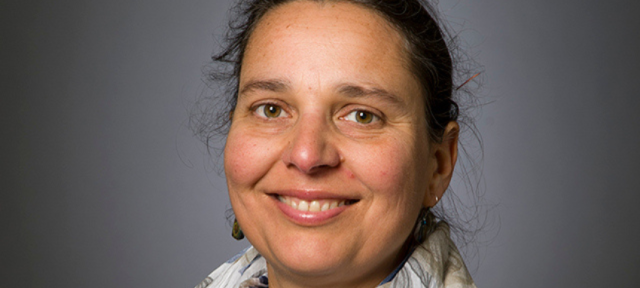Professor Laela Sayigh’s New Study Reveals Major Discovery About Dolphin Communication

Sayigh’s groundbreaking research — over 30 years in the making — indicates dolphins exhibit a behavior remarkably similar to humans when speaking to their children.
Hampshire College Associate Professor of Animal Behavior Laela Sayigh’s research focuses on the social behavior and communication of cetaceans (whales and dolphins). Her latest study, published in the Proceedings of the National Academy of Sciences, reveals that dolphin mothers use “motherese” (infant-directed speech) with their calves, something that is nearly universal in humans, but extremely rare among non-human species. According to National Geographic, “only a handful of other species have been shown to change their calls when addressing young, including zebra finches, rhesus macaques, and squirrel monkeys.”
Sayigh’s study began in Sarasota Bay, Florida, in the late 1980s, and over the past three decades she has analyzed the whistling sounds of bottlenose dolphins, unveiling seminal discoveries about how they communicate with their young. Her research reveals that bottlenose dolphins “increase the maximum frequency and frequency range of the same vocalizations (signature whistles) when in the presence or absence of offspring, paralleling similar changes in human motherese.” The study's data adds to mounting evidence that dolphins provide a powerful animal model for studying the evolution of vocal learning and language.



